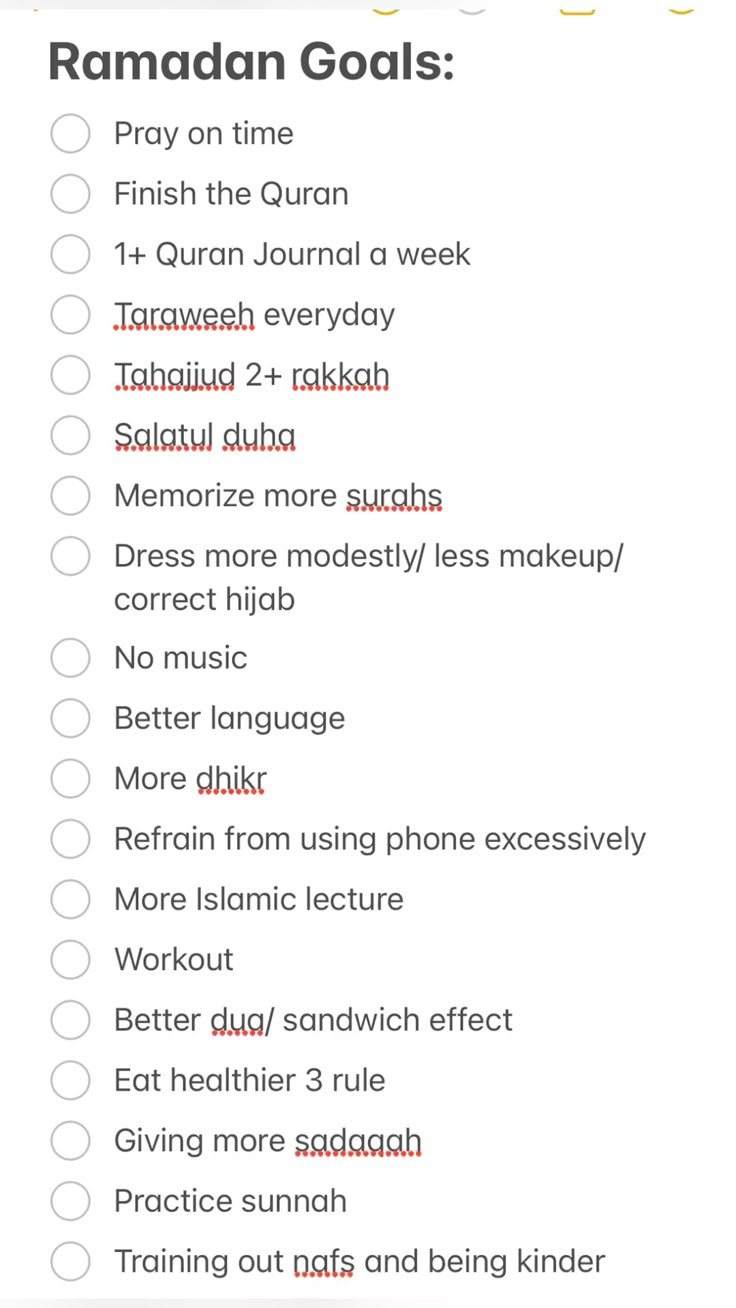
Setting Spiritual and Personal Goals for Ramadan and Beyond
Ramadan is a time of reflection, growth, and self-discipline—not just spiritually, but in all areas of life. Setting meaningful goals during this month can help you strengthen your faith while also improving your personal well-being. And the best part? The habits you build in Ramadan can continue long after it ends!
So, how can you set achievable spiritual and personal goals that last beyond the month? Let’s break it down.
1. Start with Intention (Niyyah)
Every action in Islam begins with intention, and goal-setting is no different. Reflect on why you want to set certain goals—whether it’s deepening your connection with Allah, improving your character, or making healthier choices.
✅ What You Can Do:
- Write down why each goal is important to you.
- Make a Dua asking Allah to bless your efforts and keep you consistent.
- Focus on quality over quantity—it’s better to commit to a few meaningful goals than to overwhelm yourself with too many.
2. Set Spiritual Goals That Strengthen Your Iman
Ramadan is the perfect time to build stronger faith-based habits. Whether you want to increase your Quran recitation, pray on time, or develop more gratitude, start small and build up.
✅ Ideas for Spiritual Goals:
- Quran Connection: Read, memorize, or reflect on at least one verse daily.
- Salah Consistency: If you struggle with praying on time, set a goal to improve.
- Dhikr & Dua: Make a habit of reciting morning/evening Adhkar or specific Duas.
- Acts of Kindness: Help someone in need, forgive others, or show more patience.
🔹 Pro Tip: Choose one core spiritual habit and make it a priority—consistency is key!
3. Balance Personal and Self-Improvement Goals
Ramadan isn’t just about spiritual growth—it’s also a time to improve yourself mentally, emotionally, and physically.
✅ Ideas for Personal Goals:
- Health & Wellness: Eat mindfully at Suhoor and Iftar, stay hydrated, and get enough rest.
- Mental Well-being: Reduce stress by practicing gratitude, journaling, or limiting social media.
- Time Management: Plan your day efficiently to balance worship, work, and rest.
- Self-Reflection: Let go of negativity and work on personal development.
🔹 Pro Tip: Use Ramadan as a time to break bad habits and replace them with better ones.
4. Use the SMART Goal Method
To stay committed, make your goals Specific, Measurable, Achievable, Relevant, and Time-bound (SMART).
🚫 Vague goal: “I want to read more Quran.”
✅ SMART goal: “I will read one Juz per day after Fajr.”
🚫 Vague goal: “I want to be a better person.”
✅ SMART goal: “I will practice patience by pausing before reacting in conversations.”
5. Plan for Life After Ramadan
The biggest challenge? Maintaining these habits after Eid.
✅ What You Can Do:
- Think long-term: Pick 1-2 habits to continue after Ramadan.
- Stay accountable: Join a community, have a buddy, or use a journal to track progress.
- Be flexible: If you miss a goal, don’t give up—adjust and keep going!
🔹 Pro Tip: The goal isn’t to be perfect, but to improve little by little every day.
Final Thoughts
Ramadan is a reset button for your soul, but its impact doesn’t have to end when the month does. By setting thoughtful spiritual and personal goals, you can build habits that enrich your life all year round.
What are some of your goals for this Ramadan? Let’s inspire each other! 💛
No Responses